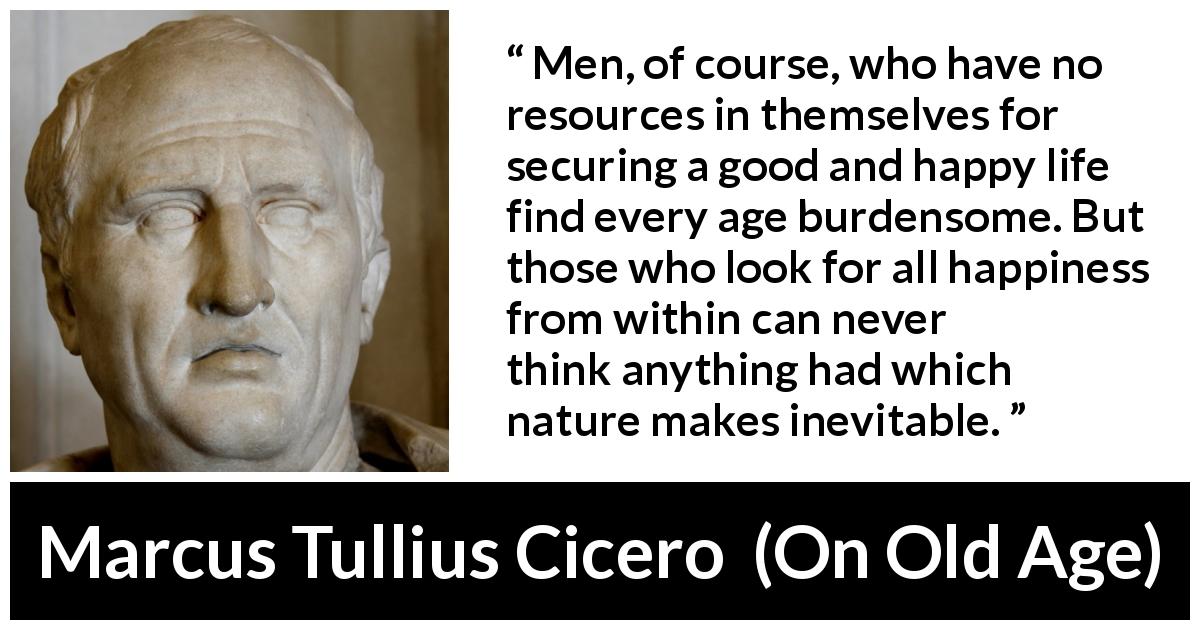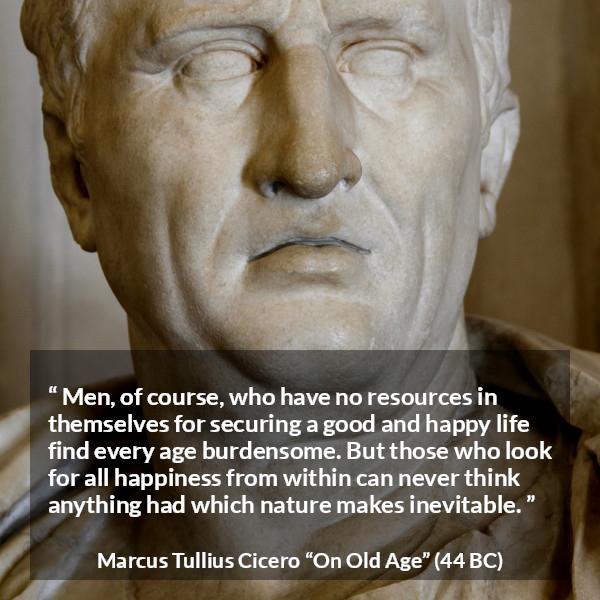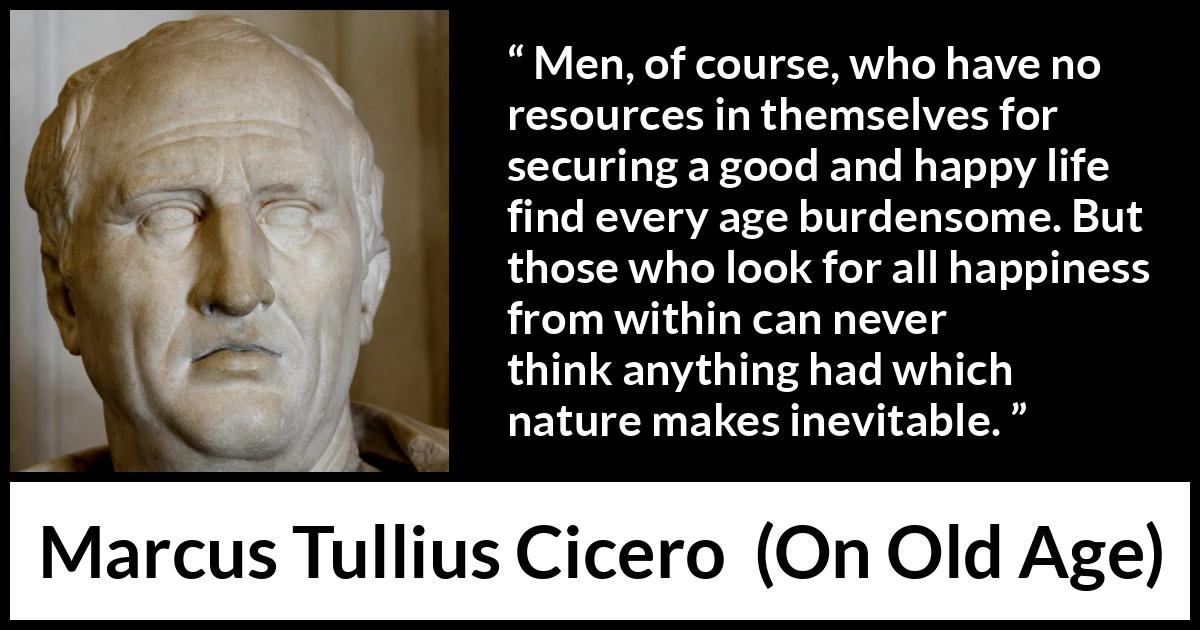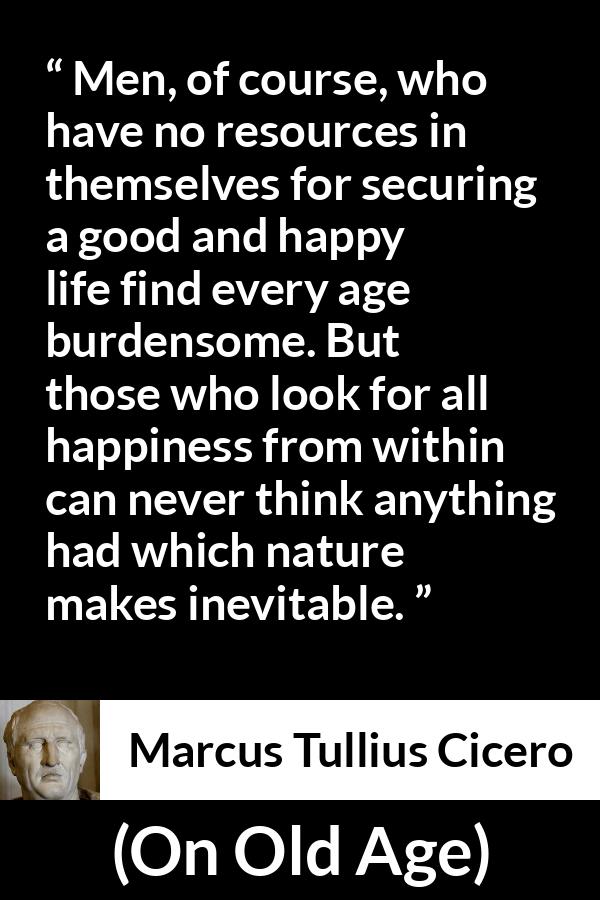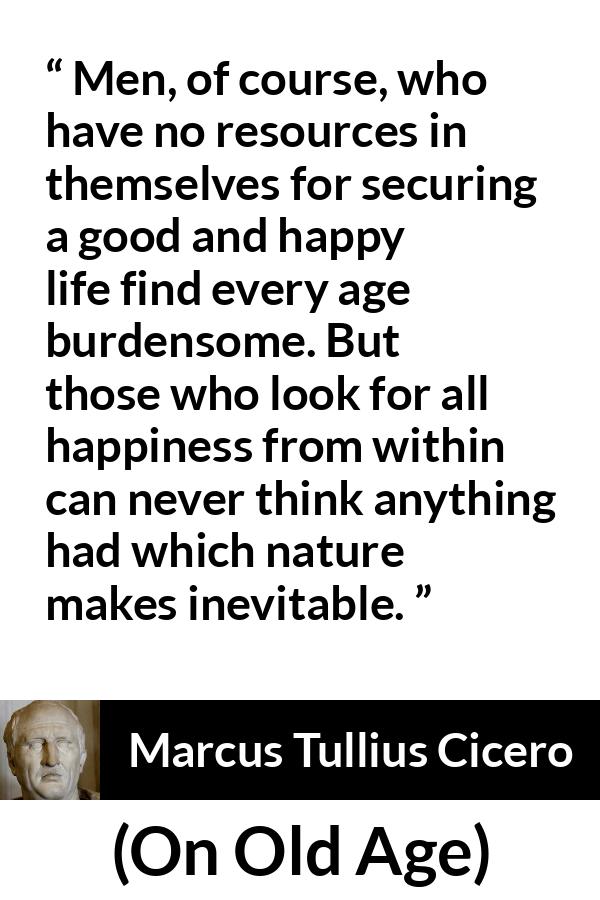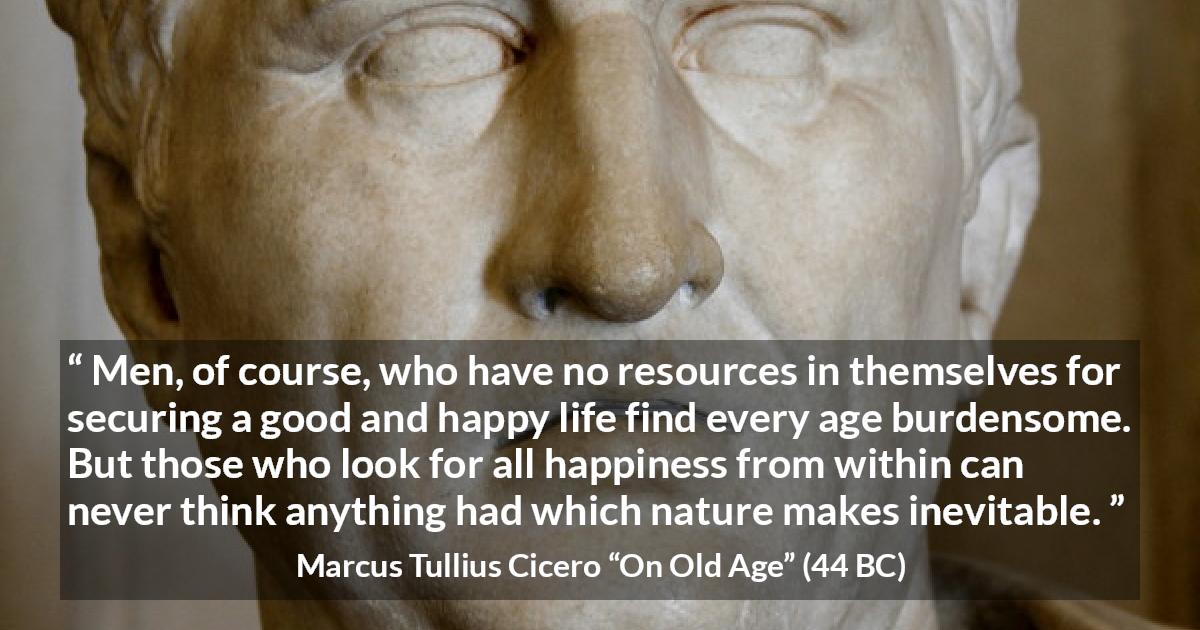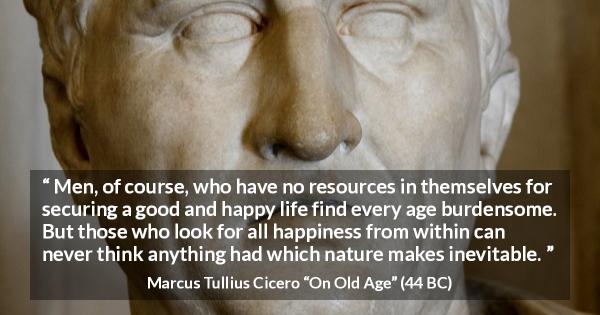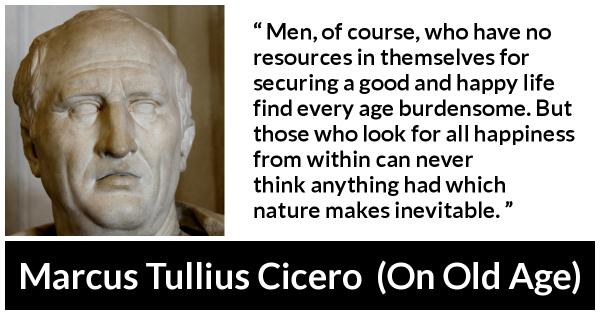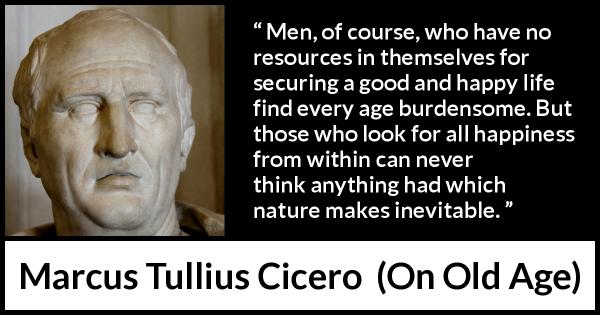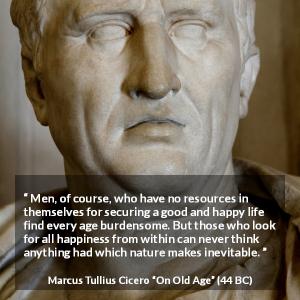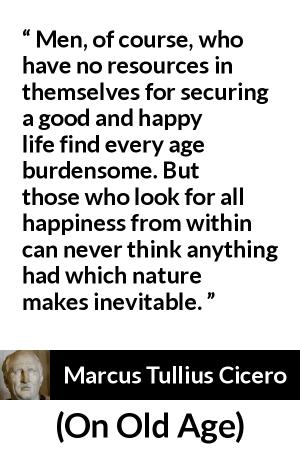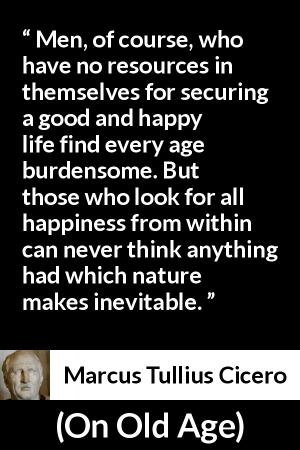“ Men, of course, who have no resources in themselves for securing a good and happy life find every age burdensome. But those who look for all happiness from within can never think anything had which nature makes inevitable. ”
Marcus Tullius Cicero, On Old Age (44 BC). copy citation
| Author | Marcus Tullius Cicero |
|---|---|
| Source | On Old Age |
| Topic | burden happiness age |
| Date | 44 BC |
| Language | English |
| Reference | |
| Note | Translated by E. S. Shuckburgh |
| Weblink | http://www.gutenberg.org/files/2808/2808-h/2808-h.htm |
Context
“Many a time have I in conversation with my friend Gaius Laelius here expressed my admiration, Marcus Cato, of the eminent, nay perfect, wisdom displayed by you indeed at all points, but above everything because I have noticed that old age never seemed a burden to you, while to most old men it is so hateful that they declare themselves under a weight heavier than Aetna.
Cato. Your admiration is easily excited, it seems, my dear Scipio and Laelius. Men, of course, who have no resources in themselves for securing a good and happy life find every age burdensome. But those who look for all happiness from within can never think anything bad which nature makes inevitable. In that category before anything else comes old age, to which all wish to attain, and at which all grumble when attained. Such is Folly's inconsistency and unreasonableness! They say that it is stealing upon them faster than they expected.” source
Cato. Your admiration is easily excited, it seems, my dear Scipio and Laelius. Men, of course, who have no resources in themselves for securing a good and happy life find every age burdensome. But those who look for all happiness from within can never think anything bad which nature makes inevitable. In that category before anything else comes old age, to which all wish to attain, and at which all grumble when attained. Such is Folly's inconsistency and unreasonableness! They say that it is stealing upon them faster than they expected.” source
